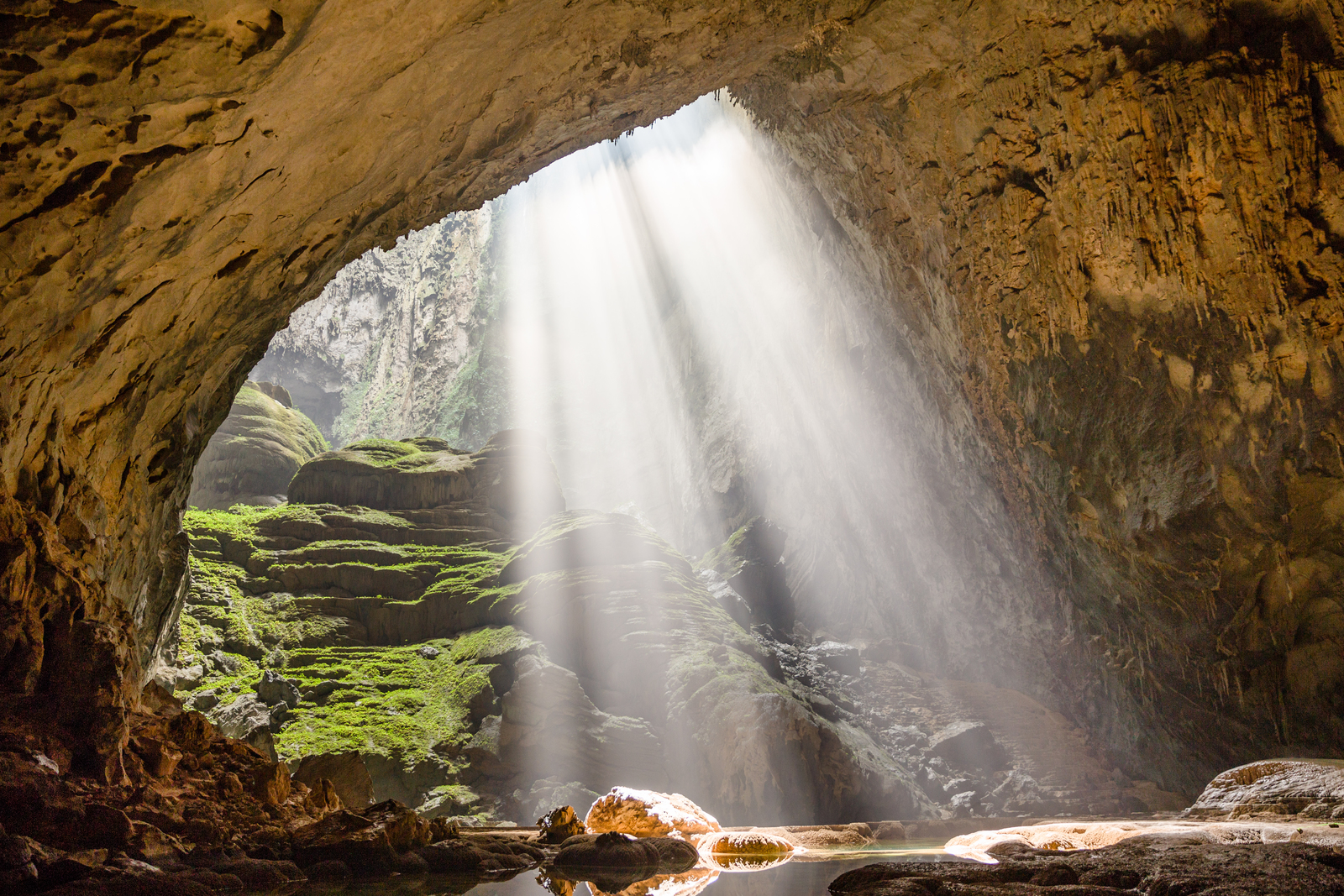Reasons why Son Doong Cave is a great wonder in your travel bucket list
| Vietnam's Phong Nha-Ke Bang among world's 25 best national parks | |
| Five expensive travel experiences in Vietnam | |
| Top Vietnamese destinations praised by international media |
Son Doong is located in Phong Nha-Ke Bang National Park, about 500km to the South of Hanoi. It was first discovered in 1991 by a local named Ho Khanh, followed by a team of British cavers lead by Howard Limbert in 2009.
Video by Vnews
Massive size
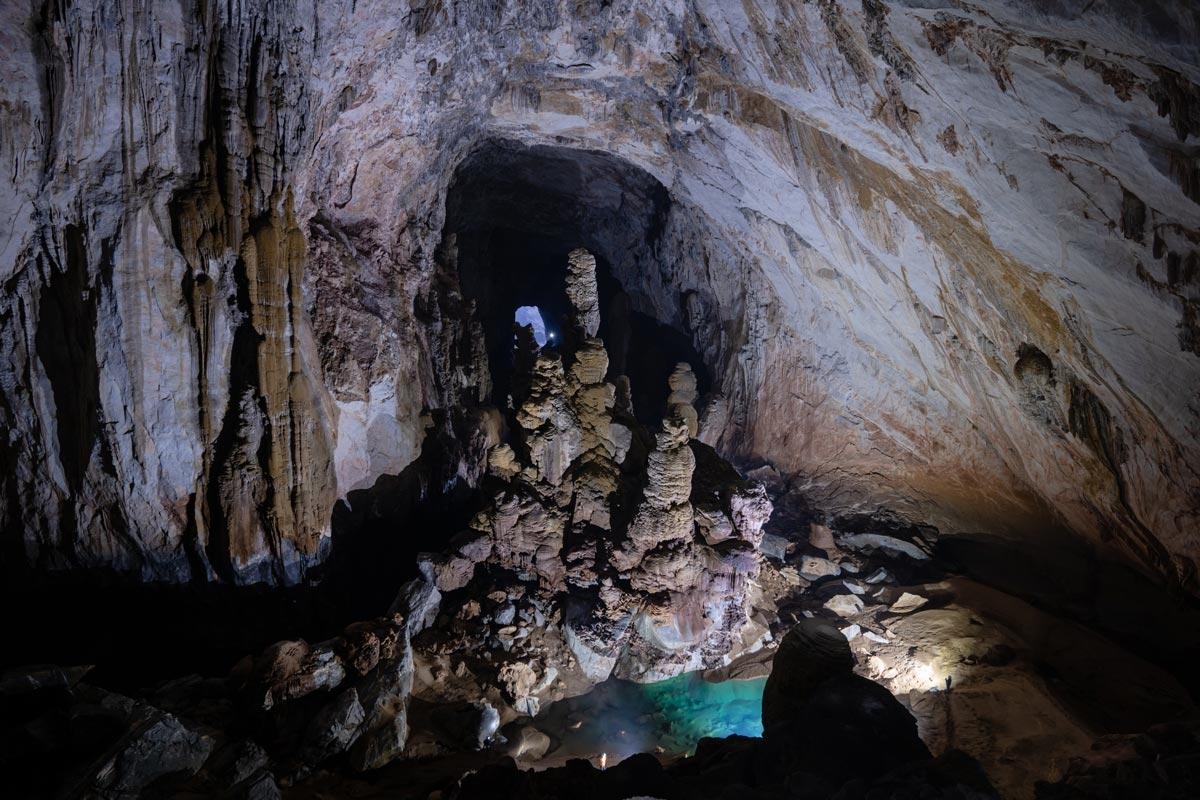 |
| Photo: Oxalisadventure |
There are various ways to determine the size of a cave, but the most common way is measuring the cross-section of the largest cavity. By this measure, Son Doong is currently the largest cave in the world. The largest chambers of the cave are up to 200 meters high and 150 meters wide, higher than the Great Pyramid of Giza in Egypt. The world’s second-largest cave is the Deer cave in Malaysia, the third is En cave which is not far from Son Doong.
Lake and Underground River
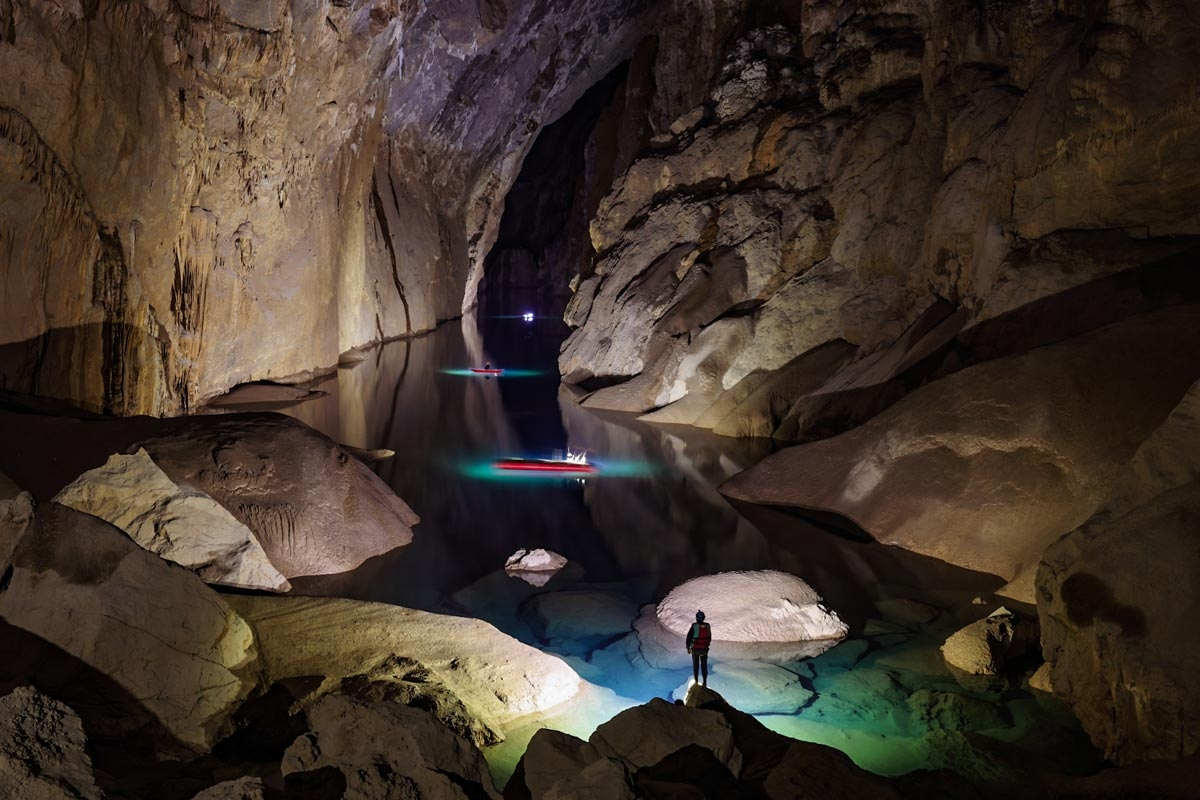 |
| Photo: Oxalisadventure |
In winter and spring, there is a gigantic lake near the exit of Son Doong cave. The lake is so large and deep that visitors have no choice but use boats to cross this area.
Cave collapses
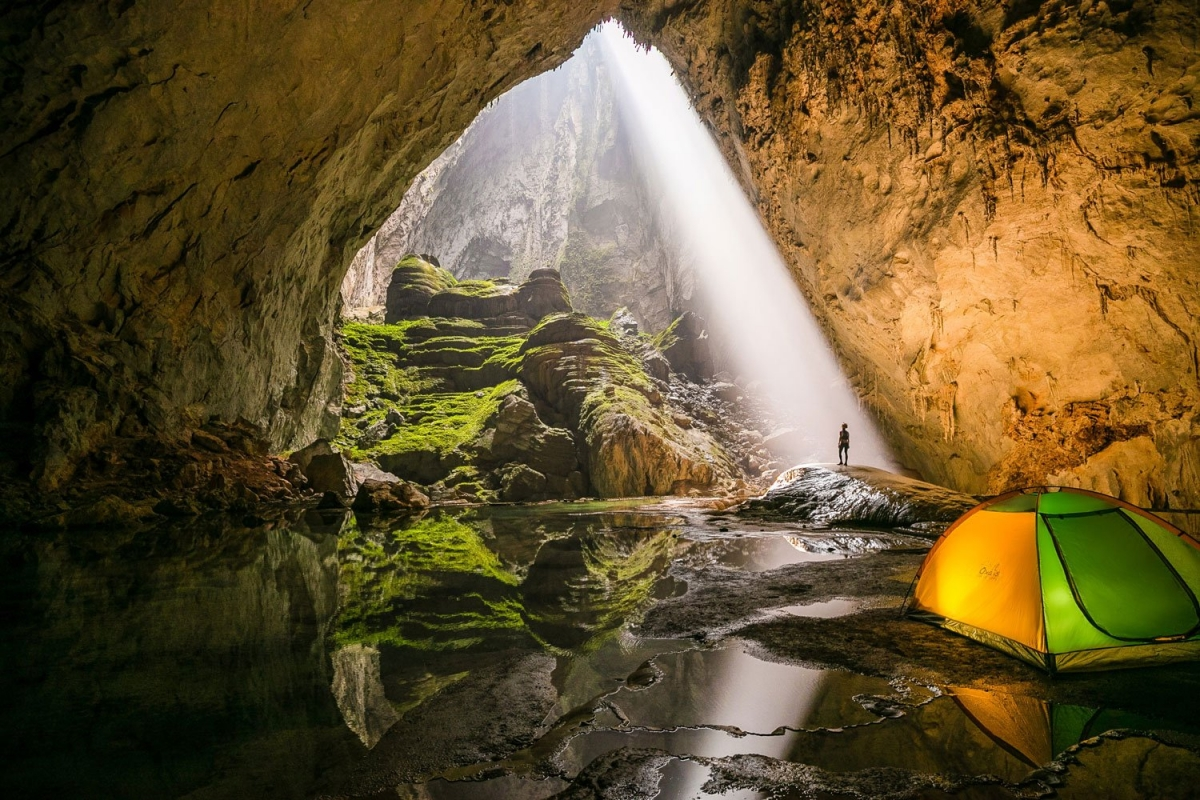 |
| Photo: Oxalisadventure |
Son Doong cave is up to 9 km long but is rarely pitch black thanks to two giant collapses like "skylights" that provide lights for the cave, creating magnificent scenery.
Forests inside the cave
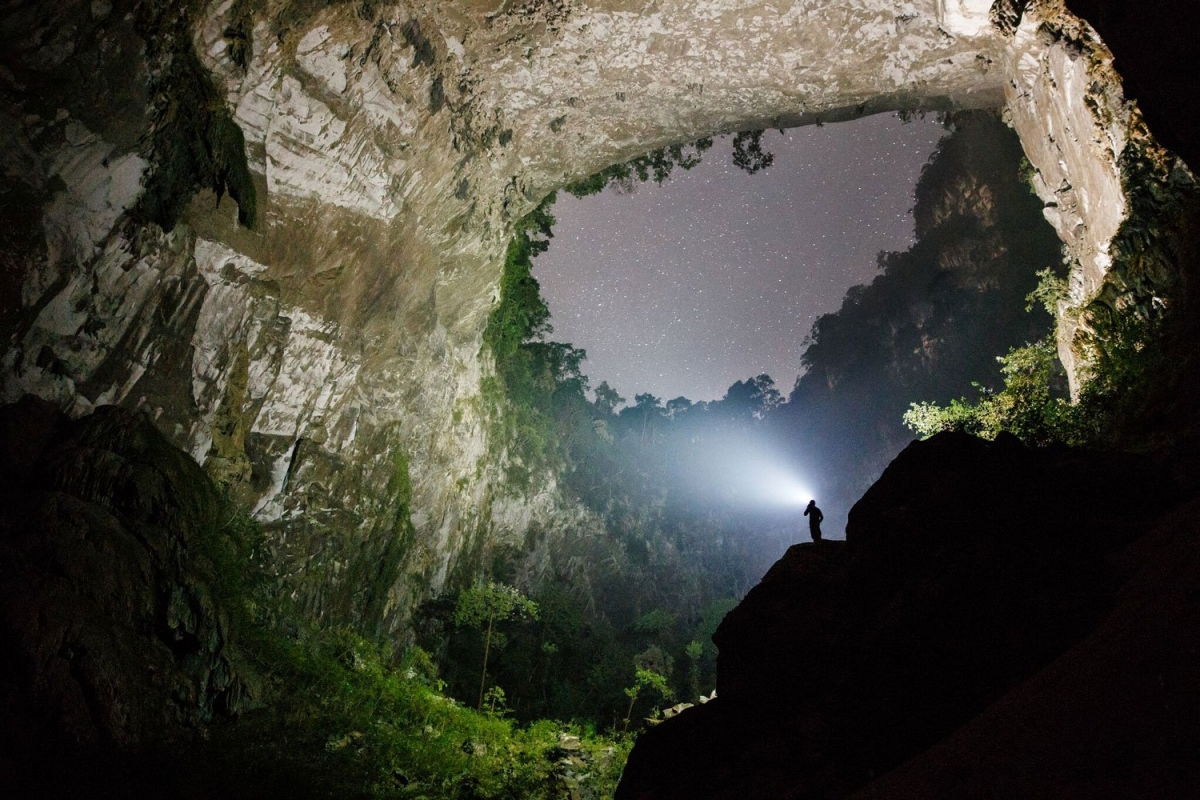 |
| Photo: Oxalisadventure |
Lights bring life; so, underneath the large holes in the ceiling lie unique thick forests. The climate and environment in Son Doong cave are different from that of the outside, hence the flora species here also cannot be found in the surrounding forests.
Prehistoric stalagmites
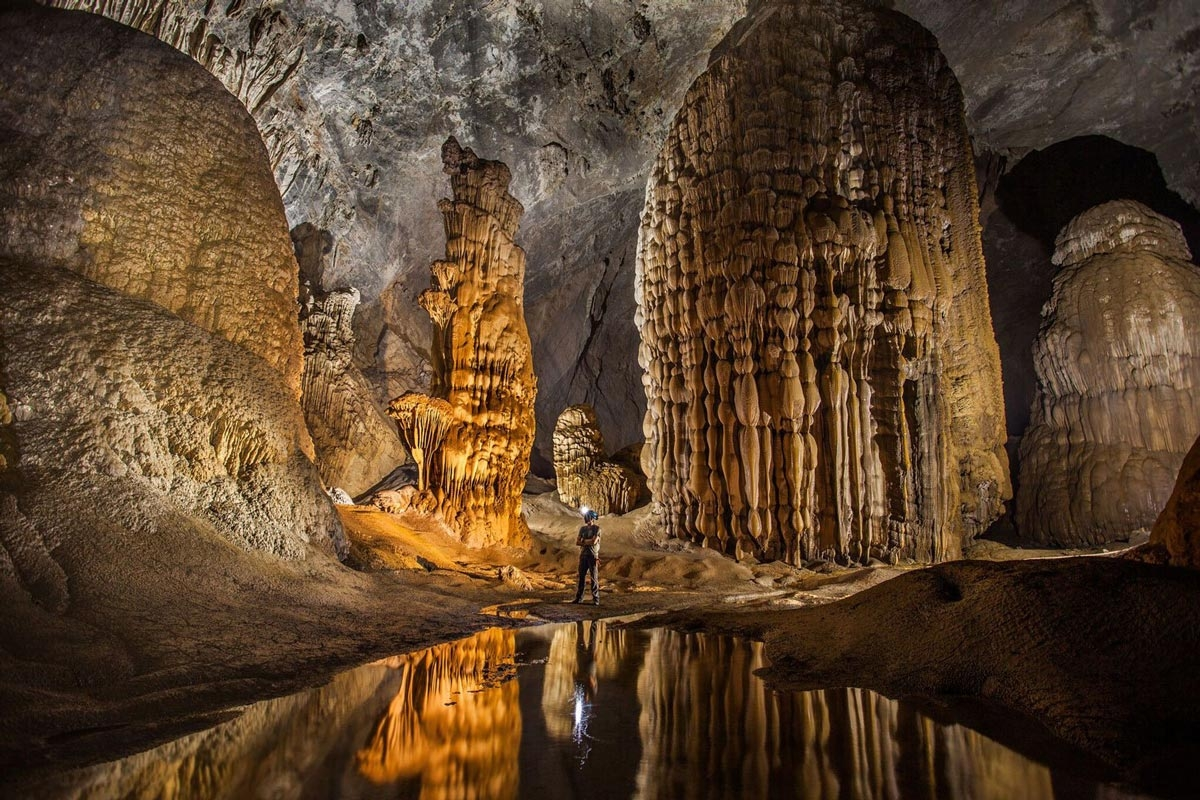 |
| Photo: Oxalisadventure |
Son Doong cave owns many beautiful and magnificent stalactites which are formed millions of years ago. Stalagmites form exotic and mesmerizing shapes. Some are even taller than the Arc de Triomphe in Paris, France.
“One-of-a-kind” campsite
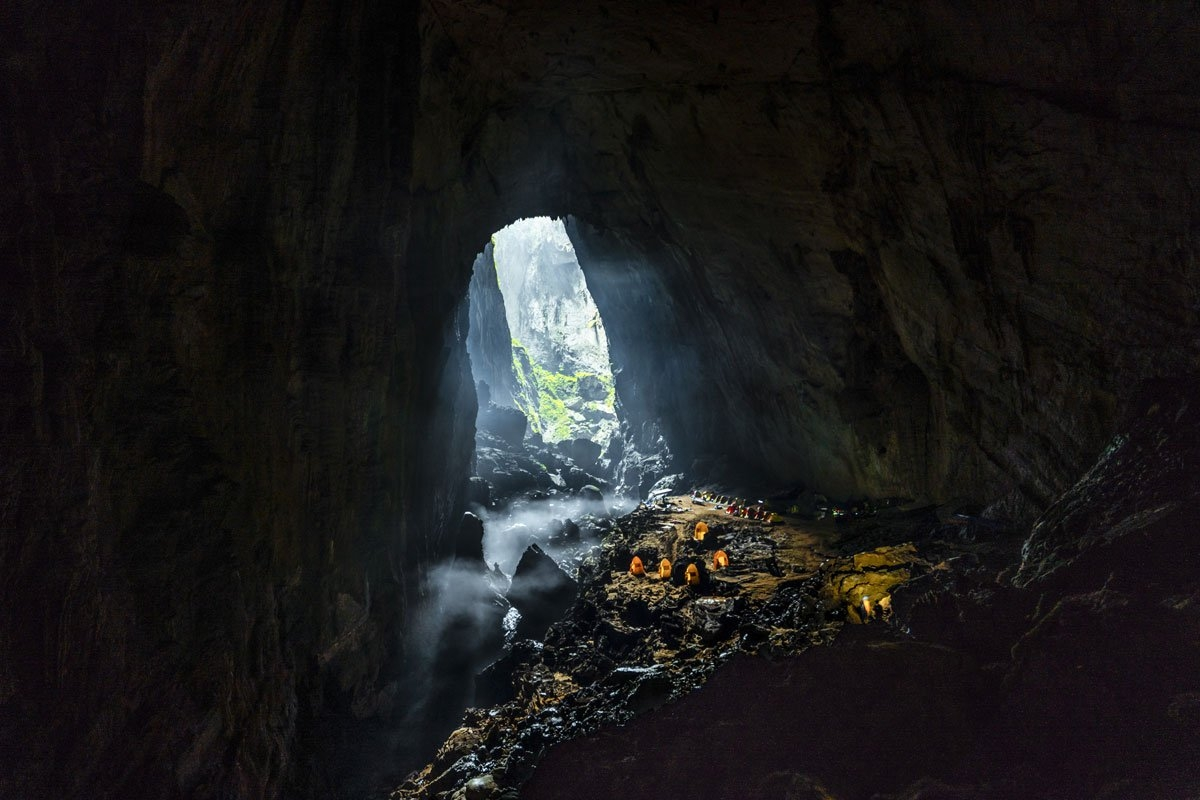 |
| Photo: Oxalisadventure |
The two campsites in Son Doong cave are undoubtedly one of the most beautiful and unique in the world. Both are located at the edge of the cave collapses where tourists can admire the star-lit sky on clear evenings.
Fauna species
Those who have the chance to explore Son Doong Cave said that this place possesses an extremely rich and unique ecosystem. Visitors can see from small creatures, insects to cave and forest wildlife, such as monkeys, bats, and blind fish.
Visitors can come across from small creatures, insects to wildlife animals such as monkeys, bats, and blind fish.
Vietnam’s wall
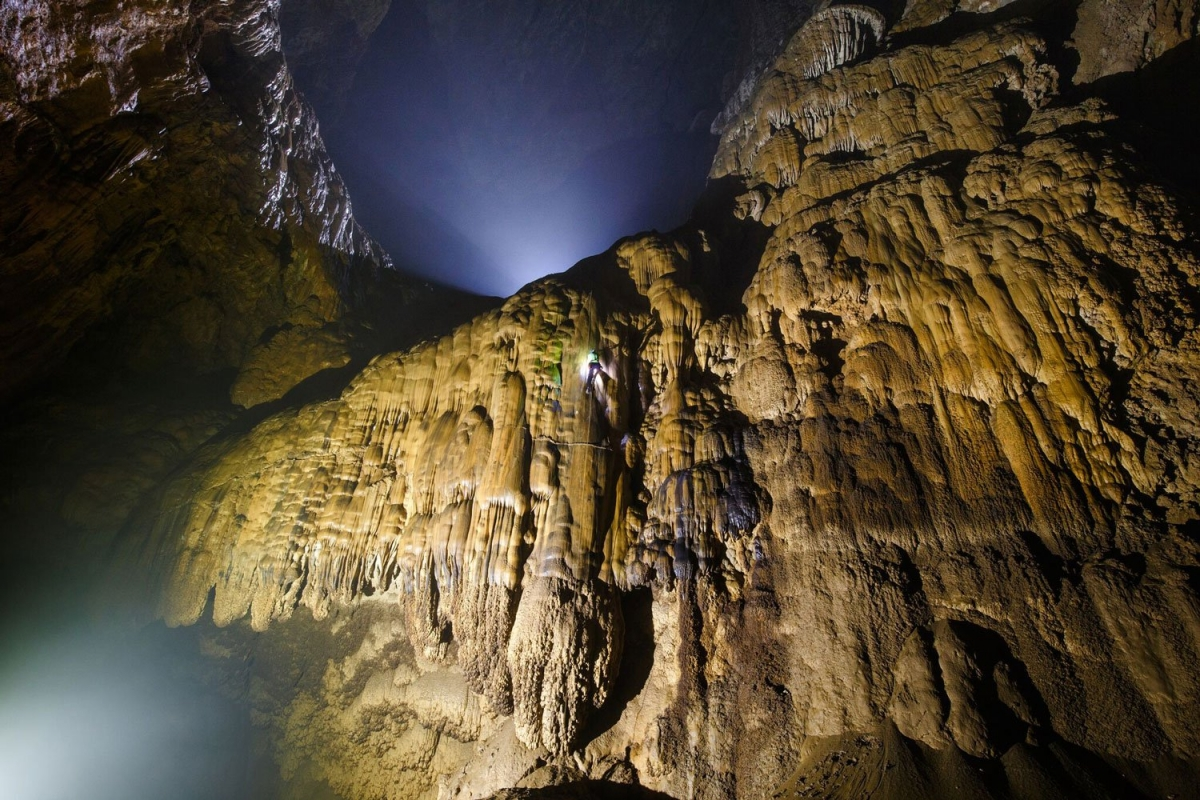 |
| Photo: Oxalisadventure |
Right in front of the cave, there is a 90m-high stone wall, called "Vietnam’s Wall" by explorers. This site is one of the most difficult challenges in the expedition of Son Doong cave. Visitors have to conquer the wall with the help of ladders, ropes, and technicians.
Experience to swim in the cave
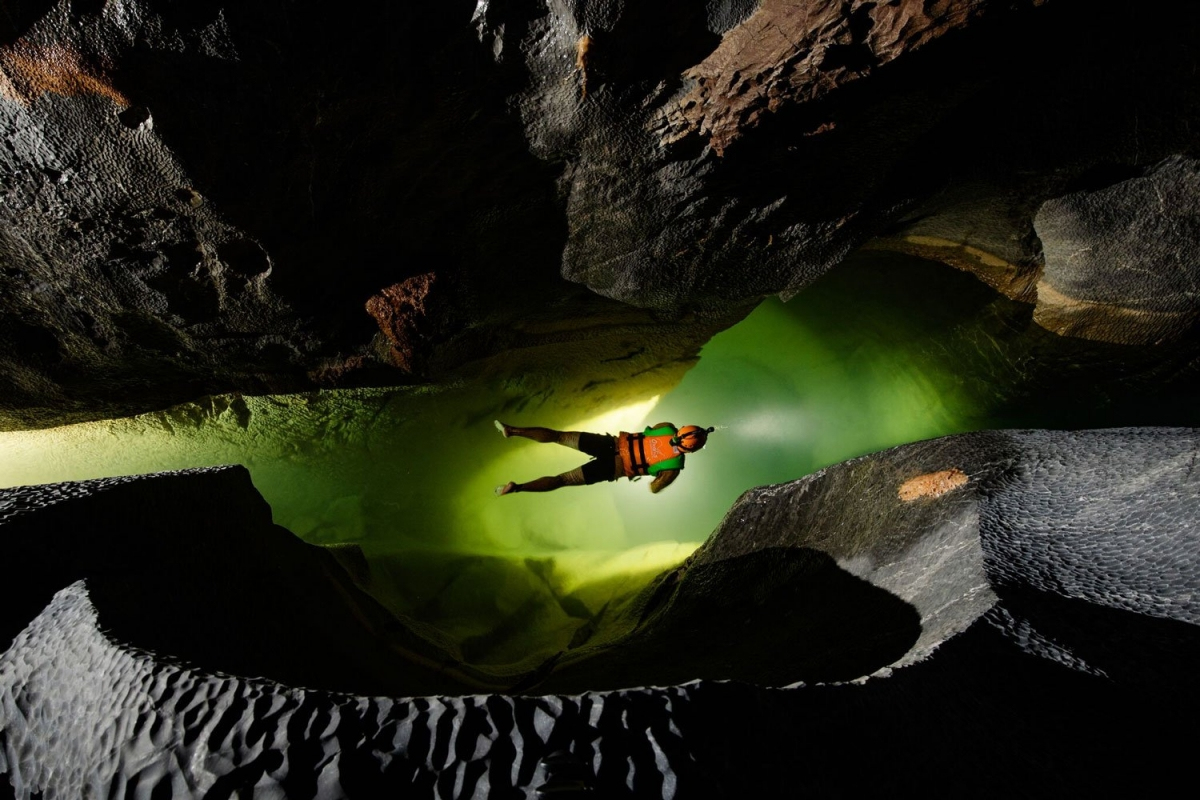 |
| Photo: Oxalisadventure |
With a series of underground rivers and lakes, swimming in Son Doong cave is both a must and an opportunity for visitors to enjoy interesting experiences. The water in the cave is constantly drained, so it is very clean and cool, but in some areas, the flow is quite fast, so visitors must follow the guidance of the tour guides.
Hunting for sunshine and clouds
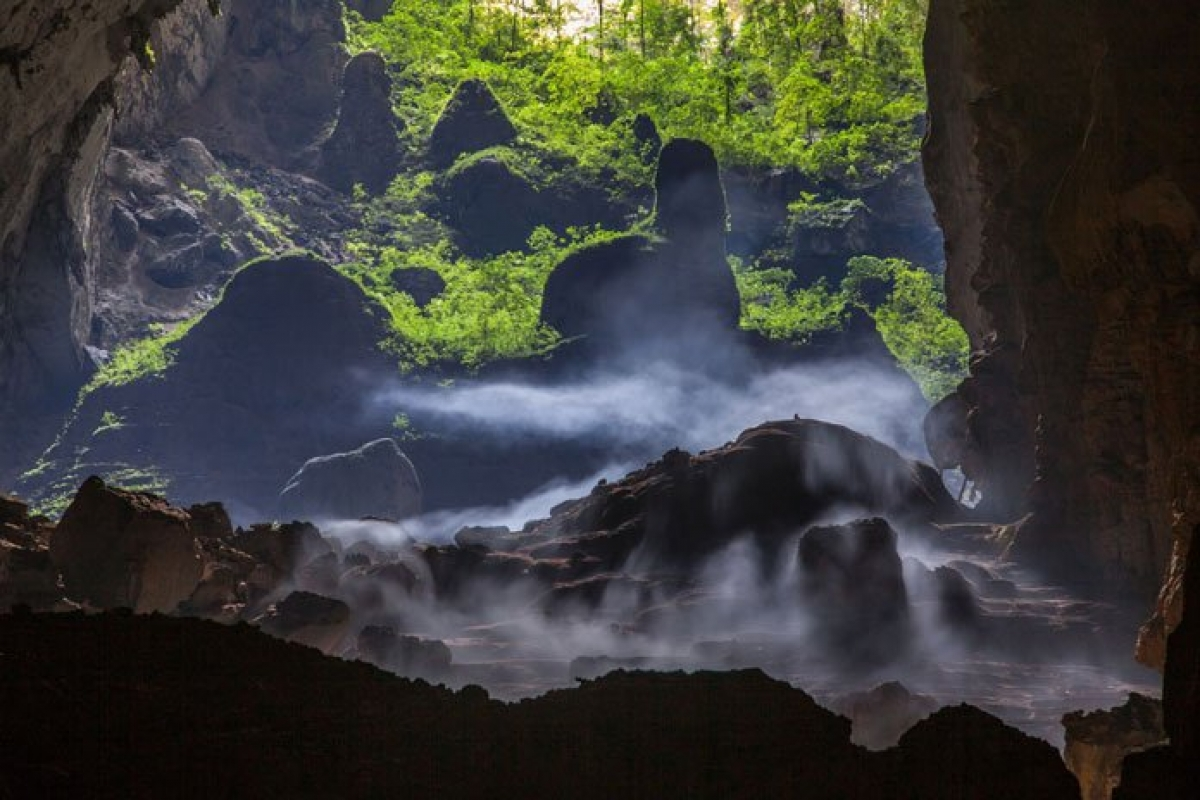 |
| Photo: Oxalisadventure |
The sunbeams and mist have created a "brand" for Son Doong cave. If you want to contemplate them, you should come here in spring, as the sun shines penetrate cave collapses. The mist also adds to the already magic and stunning landscape in the cave.
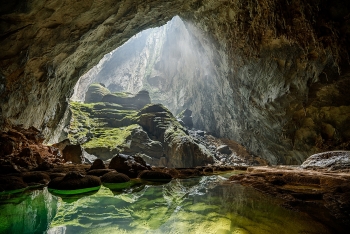 | Entrance fees to caves in Quang Binh reduced Visitors to Quang Binh Province will enjoy a 50% discount on tours to some famous caves in the area. |
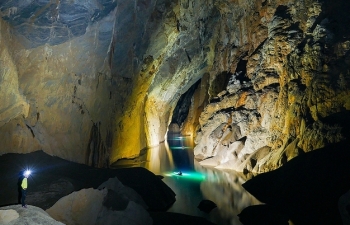 | Exclusive tours to Son Doong Cave reopened in Vietnam Oxalis, the exclusive private company earning rights to explore and conduct tours into Son Doong, the largest cave worldwide, was allowed to resume its services ... |
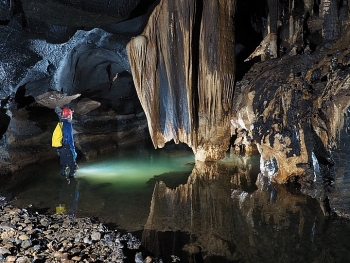 | 12 new incredible caves discovered in Quang Binh Howard Limbert, an expert of the British Royal Caving Research Association (BCRA), has just announced their discovery of another 10. 5 km (6.5 miles) of ... |
Recommended
 Travel
Travel
Vietnam Through Australian Eyes: Land of Flavor, Warmth, and Timeless Charm
 Travel
Travel
Strategies for Sustainable Growth of Vietnam’s Tourism from International Markets
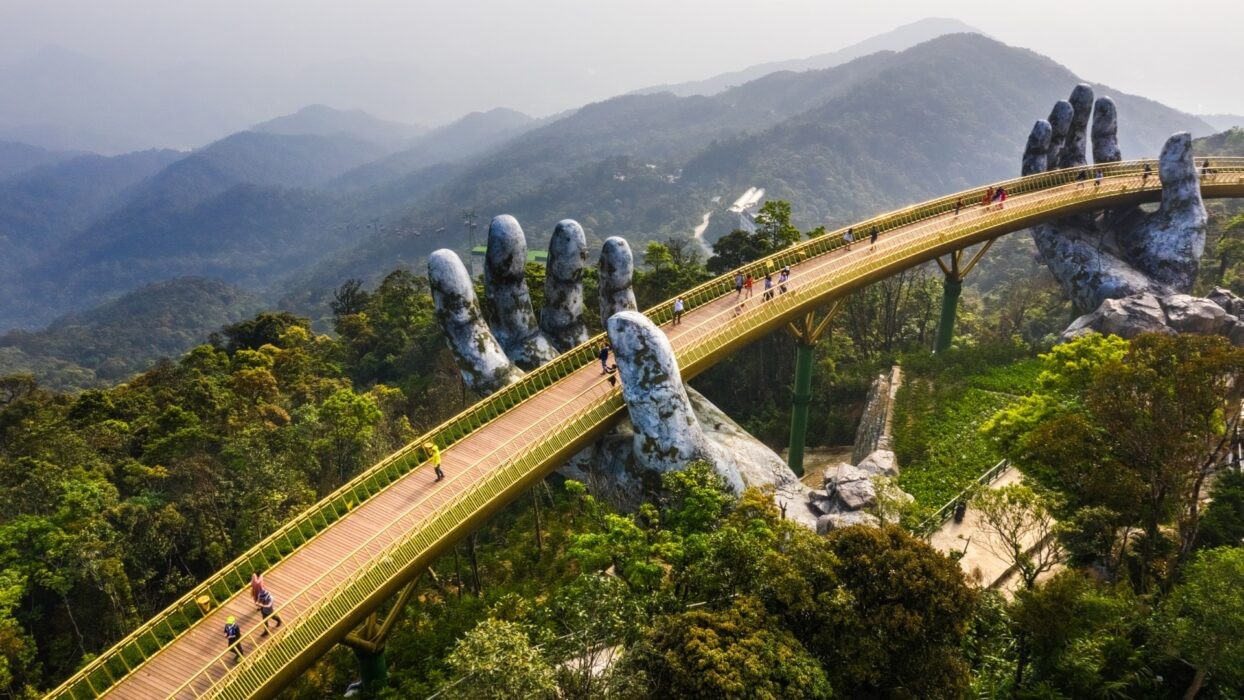 Travel
Travel
Vietnam Strengthens Its Presence On The Global Tourism Map
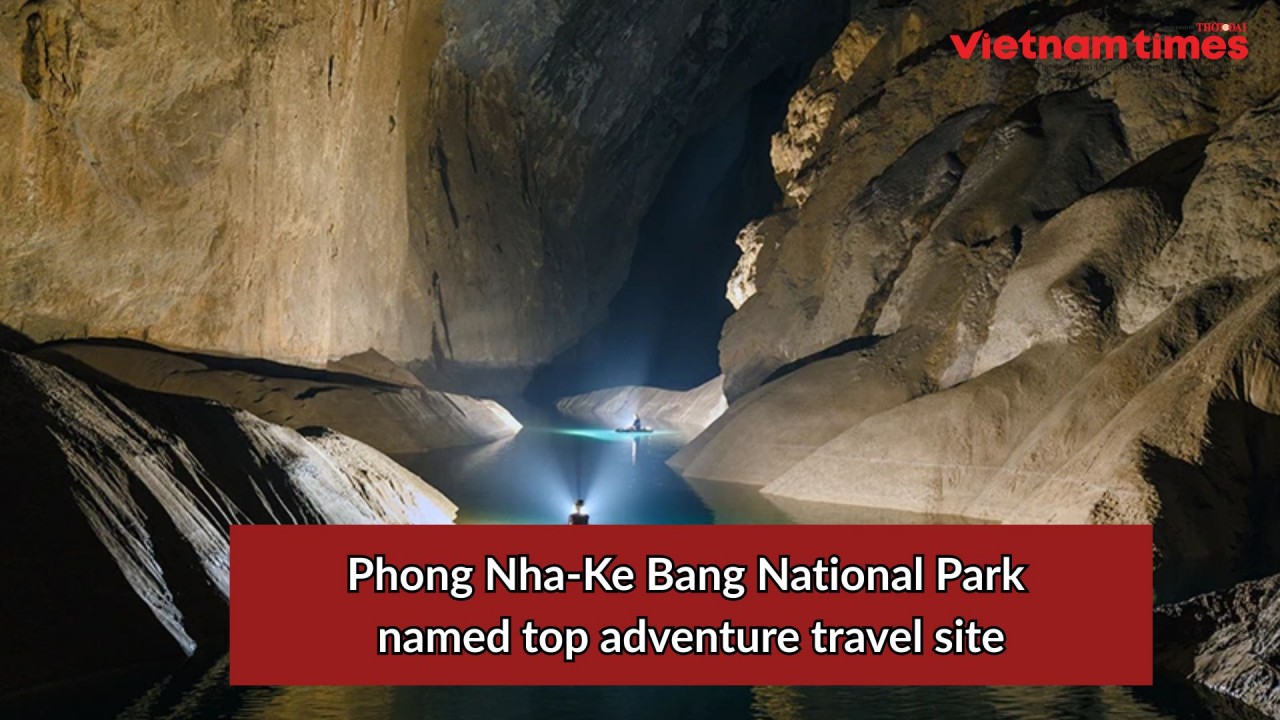 Multimedia
Multimedia
Phong Nha-Ke Bang National Park Named Top Adventure Travel Site
 Travel
Travel
Vietnam Welcomes Record-High Number of International Visitors
 Travel
Travel
Luxury Train From Hanoi To Hai Phong To Be Launched In May
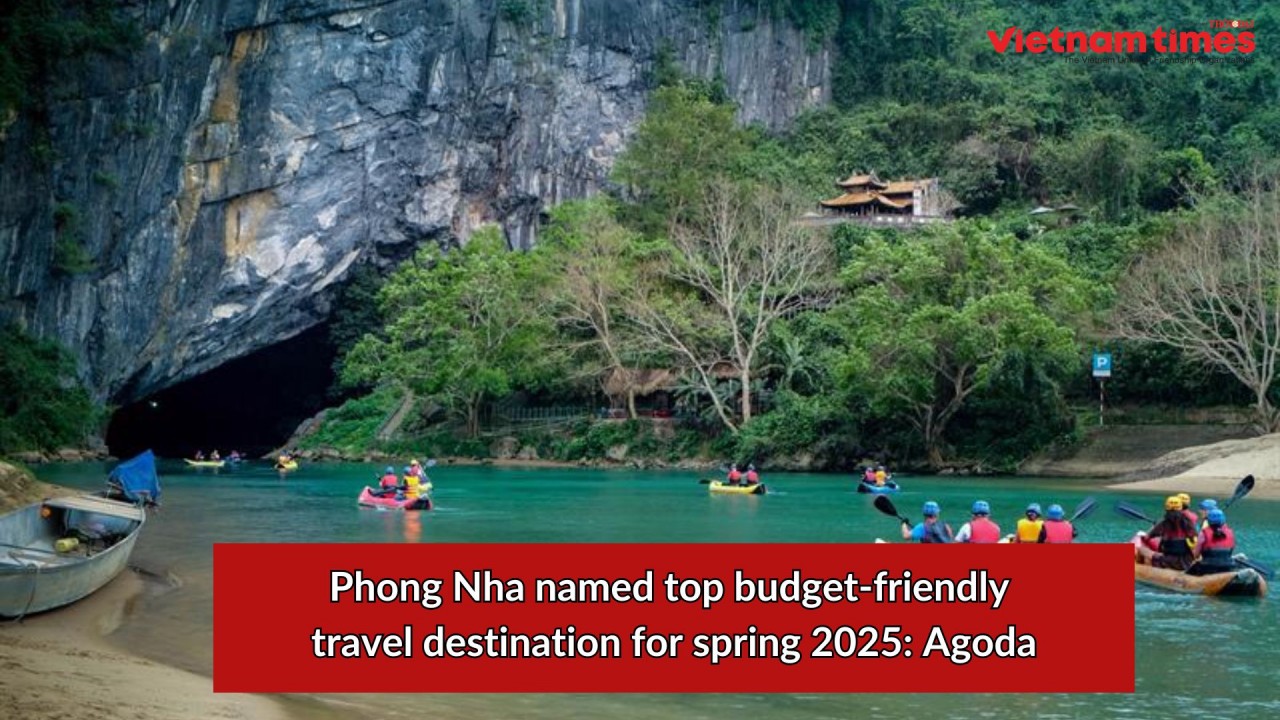 Travel
Travel
Phong Nha Named Top Budget-Friendly Travel Destination for Spring 2025: Agoda
 Travel
Travel

